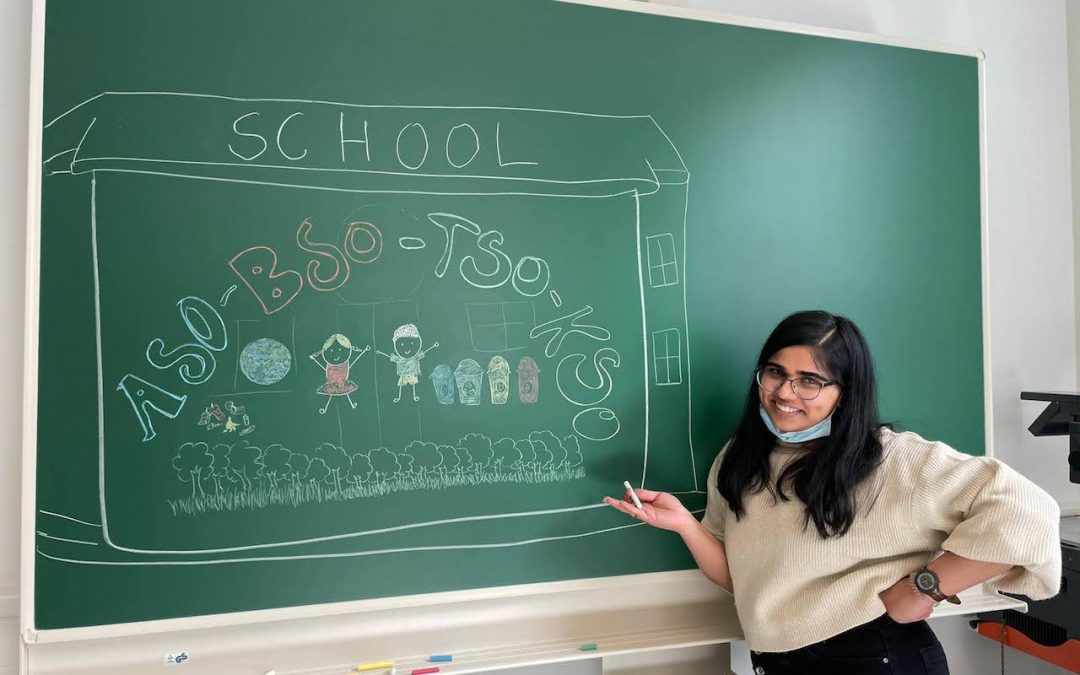By M. Arteaga, H. Gielis, A. Kudamat, A. Muñoz, M. Ratsisompatrarivo, V. Srivastava
If we need to choose a single word to describe our entire experience in the Living Lab Leuven Edition 2020/2021, “teamwork” would be one of the main contestants. Although it might seem a simple word to define, it has been especially across the whole two-week experience that we learned its true meaning and consequences. Let’s start with the word “team”. These two weeks have definitely allowed us to know each other, to connect and to get together to overcome the many challenges we faced in translating our Ndumo research to a Leuven setting. By building a relationship between each of us, we tackled every challenge as a single unit by helping each other. This leads us to the word “work”, because it is passion and dedication that glued us together to come up with thoughtful results. By having “teamwork” and living through it, we enjoyed all activities involving the Living Lab. We shared that positivity with each other to get the best of this two-week learning experience, and will definitely be unforgettable.
In South Africa, much of our action plan was dedicated to activities that were based on the interaction with students and teachers. The actions we had prepared were directly related to promoting the waste hierarchy, encouraging environmentally friendly and responsible behavior, and giving children the opportunity to connect with nature. When switching to the Leuven context, this interaction with teachers and students was no longer an option. We had to adapt the action plan to focus more on a review of existing literature, and base our activities on interviews with teachers and directors mainly. Unfortunately, with the current circumstances, teachers and directors were all very busy, students were also unreachable, and school visits were not possible.
Nonetheless, we still managed to get in touch with different people during the Leuven edition of the Living Lab, and gather the data that we needed to draw out conclusions about waste education in the area. We had the chance to talk to teachers from both primary and secondary schools, a youth movement, and two coaches that support schools with implementing environmental education. Conducting the fieldwork was quite a challenge since most of the documents and even some interviews were in Dutch. However, we overcame this challenge by providing the groups clear guidelines, and one Dutch speaker in every group.

Mindmap of waste education in Flanders ©Varnika
This Living Lab experience was informative for all of us. Our exploratory study used qualitative methods of data collection, but thanks to the interdisciplinary nature of the Living Lab, we could also experience a lot of other scientific methods. For instance, we learnt how to measure water quality; we also learnt how to assess a forest to determine its value in terms of carbon stock and energy stock. Knowing these methods is an important skill, even for social scientists, to support our scientific literacy on sustainability and to understand how some ecological research is conducted. Furthermore, we tried to communicate with the other preparatory groups, especially the mapping group, to make an interesting map that could be paired with our results. This, again, is a way to further promote the interdisciplinarity of our living lab experience.
Despite the challenges and difficulties we faced in this Living Lab, in the end it all worked out quite well. We discovered that after each obstacle a new idea appeared and a new solution was created that allowed us to move forward and to continue with our plans. Finally, we would like to thank all our professors and everyone that made this Living Lab Leuven Edition possible. We are sure that it was challenging for them as well, to create a new plan from nothing under these pandemic circumstances.
< Back to 2021 Living Lab blog
